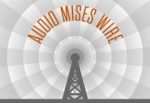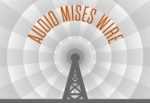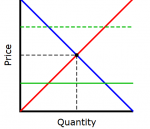Frédéric Bastiat is justifiably famous among believers in liberty. His many classic contributions include The Law and his essays “Government” and “That Which Is Seen and That Which Is Not Seen,” not to mention some of the best reductio ad absurdum arguments ever (such as “The Candlemakers’ Petition” and “The Negative Railway”) and more. Less well known are other essays, such as his election manifesto of 1846, which illustrated what a principled politician who believed in liberty would stand for.
However, far fewer people seem to be very aware of Bastiat’s Economic Harmonies, which was to be his magnum opus but was cut short by his Christmas Eve death at only age 49.
I found that strikingly illustrated when I recently reread chapter 4, “Exchange,” in Economic Harmonies. Not only does
2023-12-28






























































